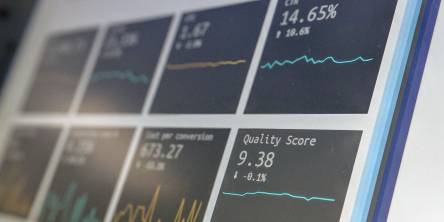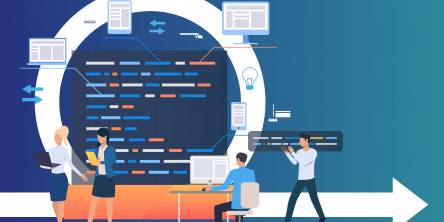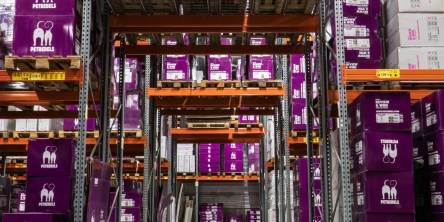How DataOps is different from DevOps?
Before delving into the differences between DataOps and DevOps, it's important to understand what DevOps and DataOps are, and how they are similar in many areas. DevOps as a strategy or approach has helped provide a faster cloud application development services process for events and deployments of apps and products that traditionally used the waterfall method. Many of the processes that enable DataOps was originally borrowed from the same foundation on which DevOps was built. Basically, each of these supports three common features.
The main DevOps concepts used in DataOps include:
1. Agile development
2. Specializes in providing business value
3. Continuous integration and continuous delivery (CI / CD) Process flow
4. Automated testing and code promotion
5. Reuse and automation
6. Delivery using Architectural Principles
7. Collaboration between teams
8. Large-scale global consumption and supply
DevOps manages software development and delivery. DataOps is an end-to-end approach to delivering data products efficiently and effectively. Both are working to uncover the need to expand software development and distribution. The DevOps concept basically serves as a starting point for DataOps, but the latter includes additional considerations for maximizing efficiency when operating data and analytics products. Nonetheless, they both serve their target audience by reducing data debt and data product development, shortening the system development life cycle, and providing continuous delivery.
DataOps focuses on the use of data in analytics, so it focuses on the flow of data. In short, DevOps focuses on software package development, and DataOps reduces the time from data need to data success. DataOps includes both the business and technical aspects of your organization. The main difference between DevOps and DataOps lies in the products manufactured. These factors need to be taken into account in order to easily distinguish them.
Key differentiators
- The human factor
- Exploratory environment management
- Quality
- Organizational Stability
- Value Delivery
- Automation in delivery
- Real-time operations
- Operations
- Agile
- Relevance and Timeliness
- Cycle Times
- Process
- Testing and Test data management
- Tools
- Orchestration
Human Factor
DevOps engineers develop and deliver software. DataOps focuses on data-based application delivery. They also require different skill sets and teams to achieve success. DataOps and DevOps users have different personalities and skills. DataOps, whose participants are primarily statistical, arithmetic, and graphical and may or may not be very tech-savvy, but their knowledge is usually theoretical and may include technical skills. Data engineers, data scientists, and analysts create models and visualization tools. Meanwhile, DevOps is designed for software developers to program or code their DNA.
DevOps professionals take action to support the entire software development lifecycle. They are responsible for automating processes, application deployment, testing, and any production releases. In general, these two methodologies cover quite different sets of procedures, however, some steps may be similar to a certain extent. Both use Agile continuous integration (CI) as well as continuous deployment (CD) practices throughout their development phases. At the same time, the DataOps covers a much more complex scenario that also takes into account data-related factors such as silo sing business data, data management, software delivery monitoring and more.
Exploratory environment management
Typically, data teams use more tools than software development teams. In addition, the exploratory environment of data analytics is more challenging from a data and tools perspective; Data teams are also moving naturally away from data islands across the enterprise.
Quality
DevOps implements code review, continuous testing, and monitoring. DataOps works on data governance and process control. In DevOps, the software development without any hitch in the operational environment is done by ensuring the quality development cycle, while in DataOps, the Lean quality factor ensures that the data Extracted of the highest quality and business-ready, reliable at lightning speed, insights can be realized. While both have quality components, DevOps aims to produce higher quality output while DataOps ensures that high-quality data goes into the method.
Organizational Stability
In DevOps, development teams are aligned with IT, Engineering, and Business teams to accelerate operations before and after the sprint. In DataOps, citizens of extracted data align with IT, development, and sales teams by defining the correct roles for faster collaboration.
Value Delivery
DevOps follows software engineering principles (data pipelines and analytics, state data storage, and process control). While DataOps implements data engineering, analytics, data science, and business intelligence.
Automation in delivery
In DevOps, automation for uninterrupted software delivery is accomplished by automating the server and version configuration, network configuration, version management and version control, and machine learning during testing. Whereas in DataOps, the uninterrupted delivery of data through automation is achieved through data collection, retention, integration, modelling, metadata management, interaction self-service, data governance, and multi-cloud integration.
Real-time operations
In DevOps, a real-time collaboration helps stakeholders to supply real-time feedback after every sprint through a good feedback-oriented optimization technique. In DataOps, a real-time collaboration facilitates stakeholders to derive reliable insights on fresh data as they flow into the system through a well-structured Result-oriented optimization technique. DevOps involves engineering and development teams for Real-time collaboration. DataOps involves application developers, business users, and IT operations teams for Real-time collaboration.
Operations
DevOps runs repeatable and similar cycles. DataOps addresses changing data challenges. Since for DataOps, data is important and for DevOps, the code is vital.
Agile
In DevOps, agile facilitates frequent deployments and faster recovery from deployment failures. In DataOps agile ensures improvement in data quality and reduced time to spot metadata.
Relevance and Timeliness
Data is always changing and needs to be constantly rediscovered and retested. Your business can run on an old classic product, but not on old data. While DevOps can exist using predetermined guidelines and approaches, data pipelines cannot be rigid and programmed to provide equivalent logic on a continuous basis. Augmented data preparation machine learning automatically prepares new sources, patterns, and anomalies in data, and data preparation solutions provide both rapid deliveries of knowledge paths and improvement. This improved data accuracy enables DataOps to be more agile.
Cycle Times
DevOps focuses on shorter release cycles. While DataOps focuses on building endless data pipelines.
Process
The DataOps and DevOps lifecycles share the same interaction properties. In DevOps, however bad the previous process goes astray, it consists of a knowledge system and an analytical development process, both operational and transcendent to secure continuous agile process but although DataOps pipelines are conceptually similar to DevOps event-driven processes the DataOps process is more difficult for the secure continuous agile process.
Testing and Test data management
DevOps includes managing test data during deployment. DataOps starts with analytics and then focuses on leveraging multiple data sources. In most DevOps environments, managing test data is not a high priority; With DataOps, accelerating analytics development is critical for innovation to catch up with fast iterations.
Testing in DataOps is done both during the insights and the analytics development process. These tests plan to detect anomalies, flag unusual data values, and, unlike DevOps, validate new analytics before deployment and these tests are integrated into a knowledge quality framework for continuous monitoring.
Tools
DataOps follows DevOps and inherently most of the tools needed to support DataOps are still in their infancy. While testing in DevOps is usually automated, DataOps users modify test automation tools or create their own from scratch.
Orchestration
In DevOps workflows, application code does not require complex orchestration. However, for DataOps, the Insights pipeline and analytic development orchestration are important components. Orchestration is common in the DataOps pipeline and drives the data flow, but there is usually no such coordination between the pipeline during application development
Similar Articles
Unless you have been hiding in a cave somewhere, you would know and realize that the world is creating information at a stunning speed. While it is genuinely considered normal information that said data can now be turned into the groundwork of achievement for essentially any business in the present day and age.
Software development refers to the procedure of constituting and nourishing software applications. This provokes the utilization of many fundamentals and practices. Software development targets constitute structured, dependable, and beneficial software.
Designing a data warehouse is a strategic activity that builds the groundwork for strong data management and analytics capabilities within a business. In today's data-driven world, the systematic creation of a data warehouse is not only a technical requirement but also a critical step in harnessing the power of information for informed decision-making.
The integration of Internet of Things (IoT) technology into the construction and real estate sectors, which include buildings, infrastructure, homes, and businesses, is predicted to increase dramatically in the future. Despite this predicted expansion, the construction industry is behind other industries in terms of IoT adoption.
In this dynamic world of innovative and transformative technology, the use of Minimum Viable Product (MVP) has proven to be a winning strategy for success.
While monolithic applications may have waned in popularity during the era dominated by the cloud and microservices, interest is resurgent. Organizations, in considering their position on the application modularity spectrum, are now examining both the advantages and drawbacks of relying on microservices.
Data visualization is an indispensable tool that allows us to transform raw, and often unstructured data into insightful visuals, identify patterns, and communicate these insights to the wider audience and stakeholders.
For modern businesses to thrive, ensuring the effective management of inventory stands has become vitally important. Inventory management stands as a cornerstone of success. And the emergence of the Internet of Things (IoT) has introduced a new era of connectivity and efficiency across diverse industries.
Do you know what the following e-commerce companies have in common: Amazon, Walmart, eBay, and more? All of these e-commerce companies' apps make use of Java. Java is decidedly among the leading choices of programming language for e-commerce applications because it offers a world of benefits; for example, since Java code can be run on any platform with a Java Virtual Machine (JVM), users of e-commerce apps made with Java can access the said apps on a variety of devices.








